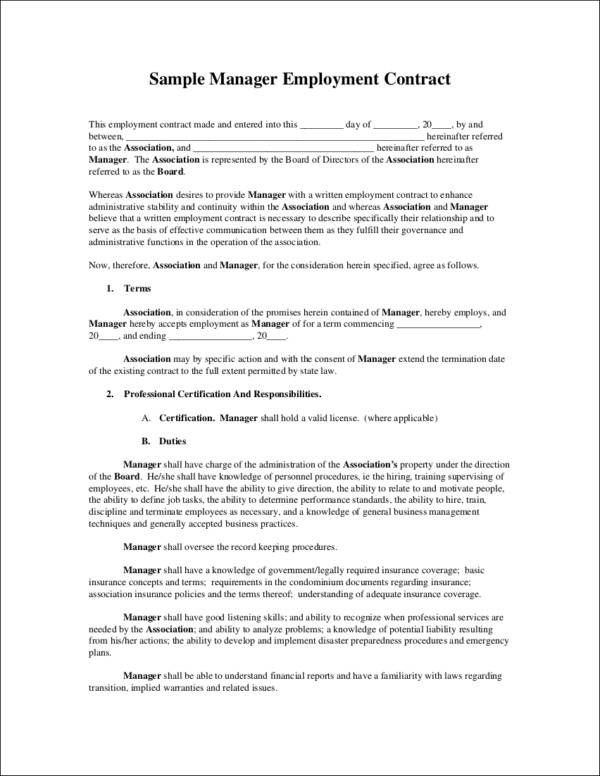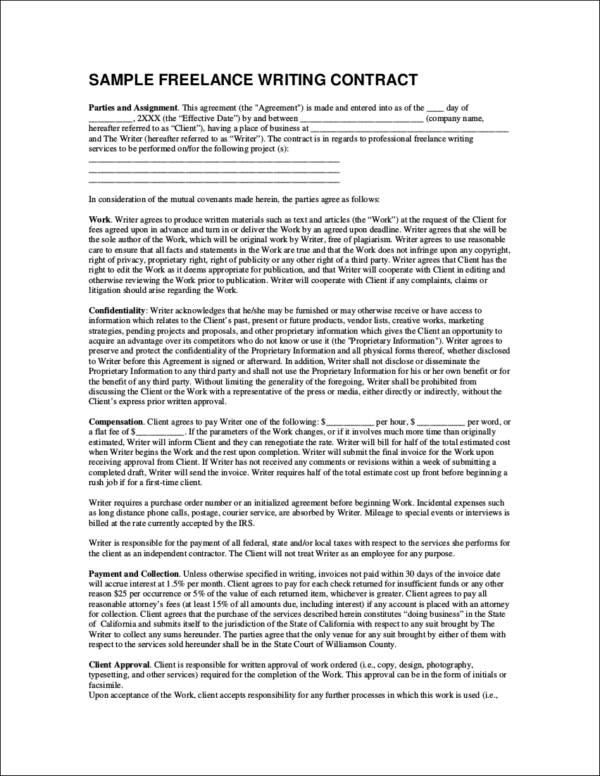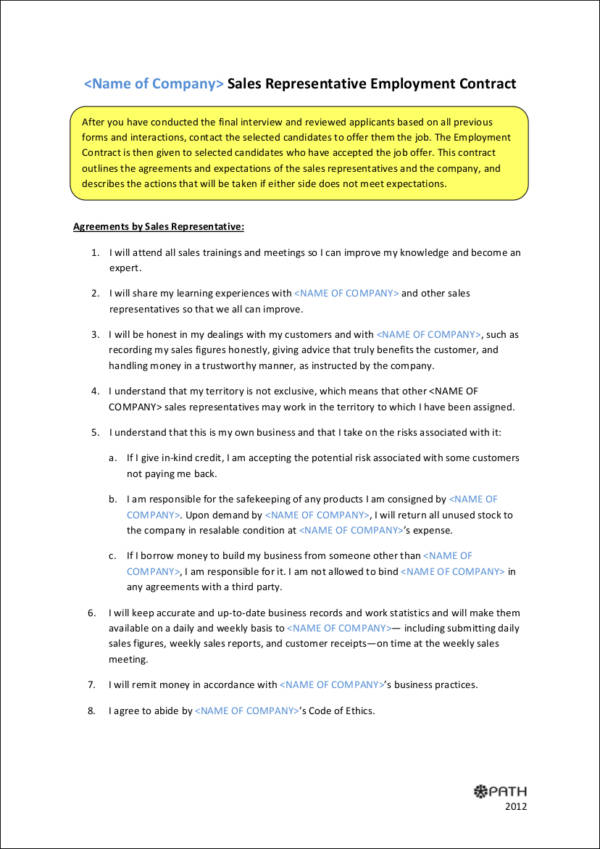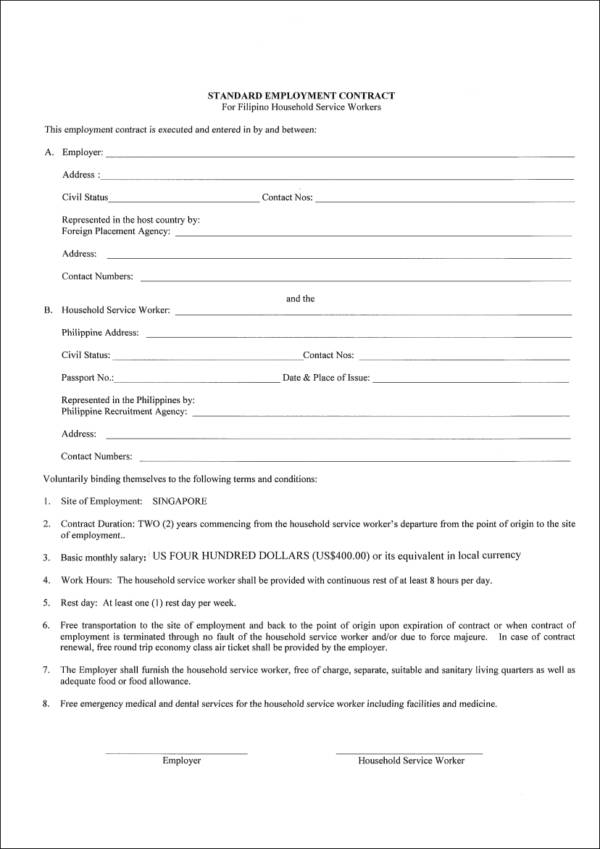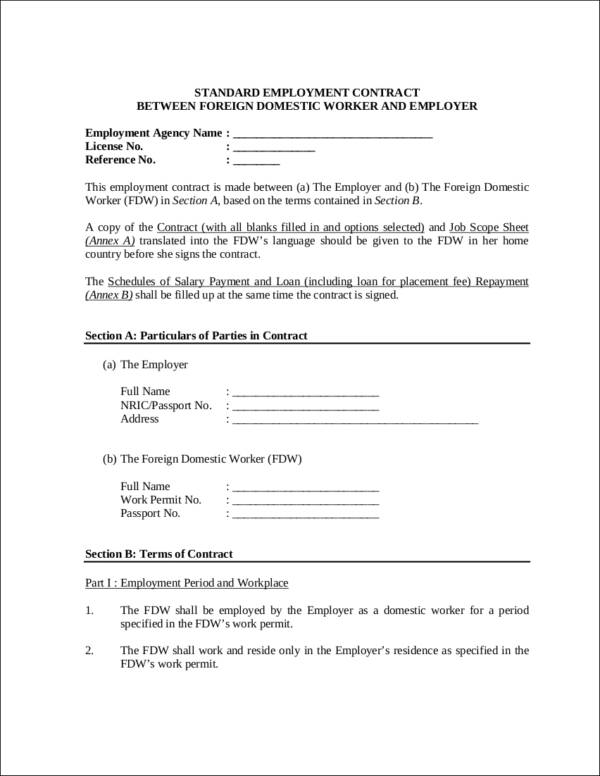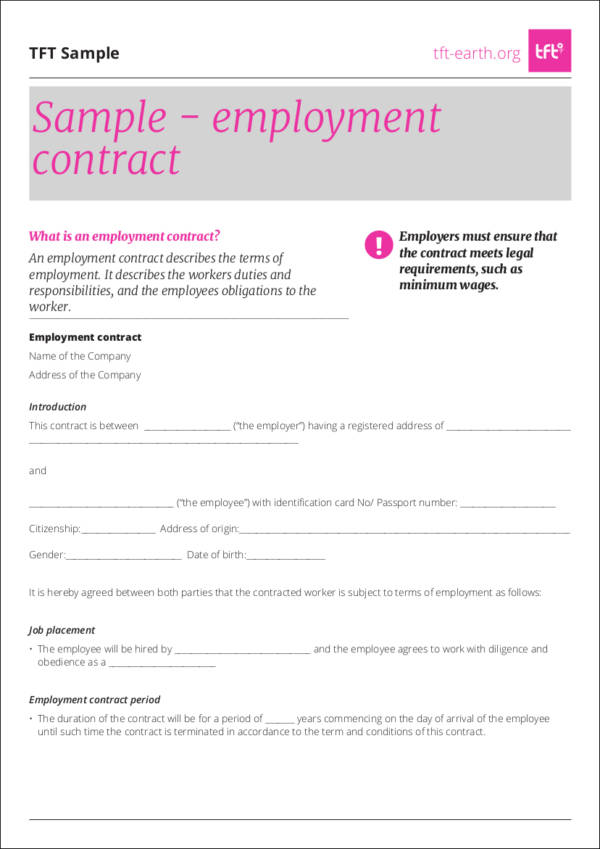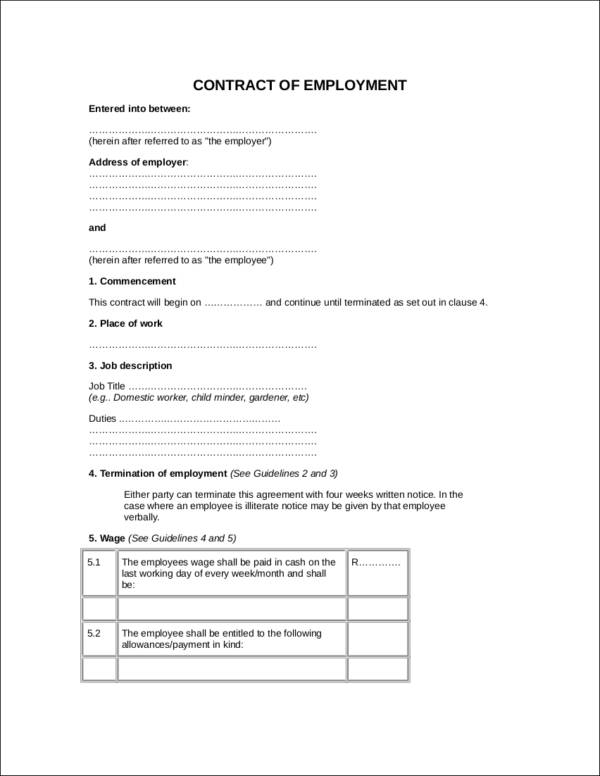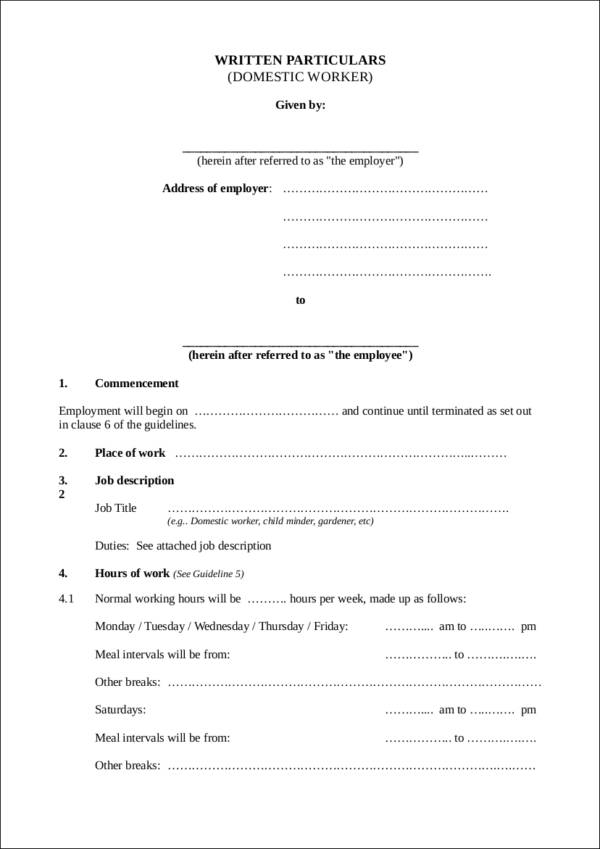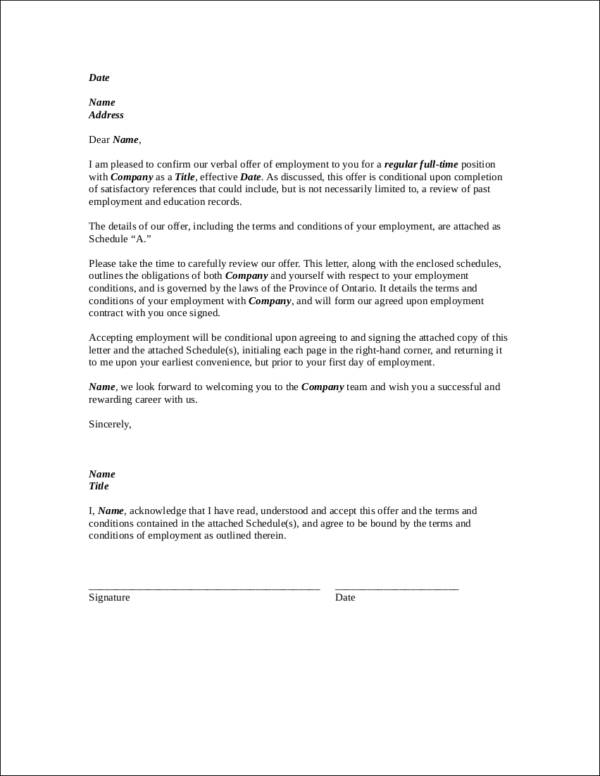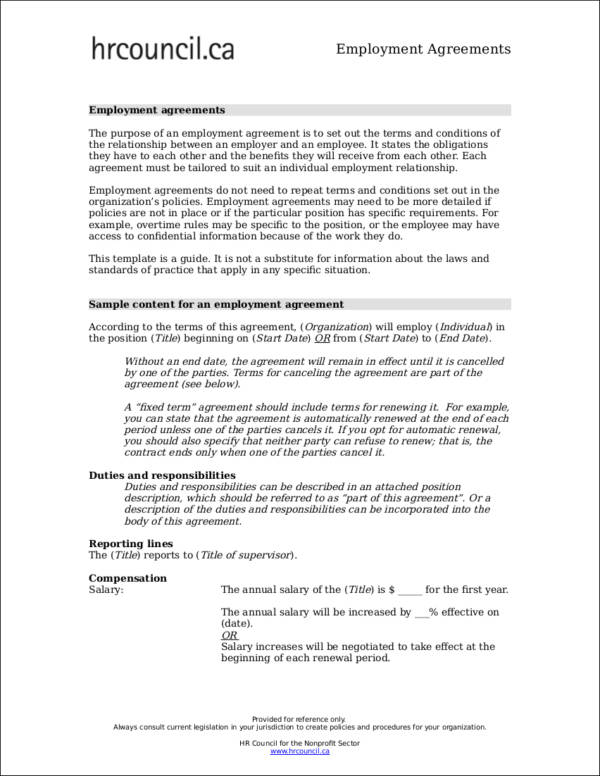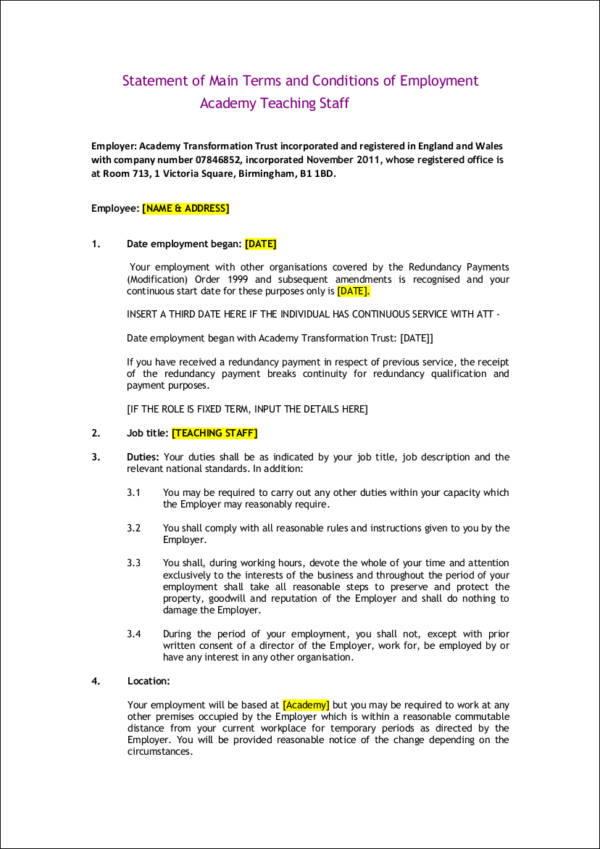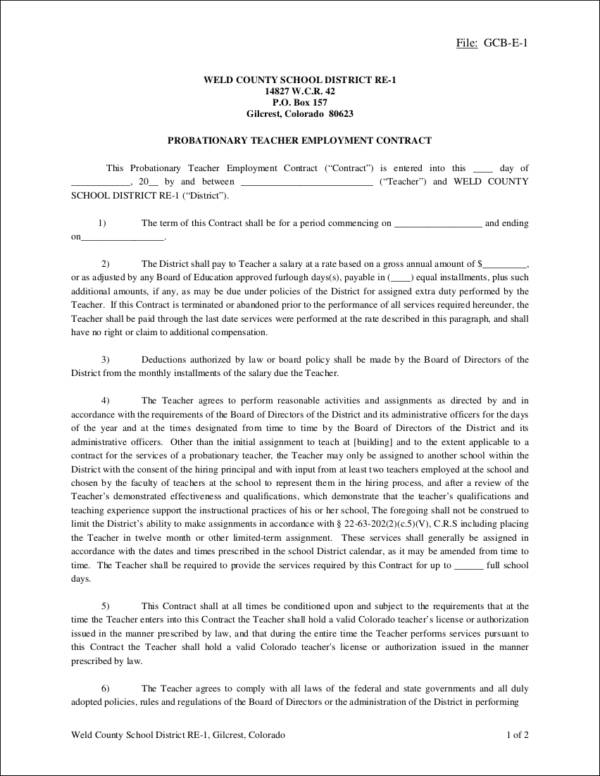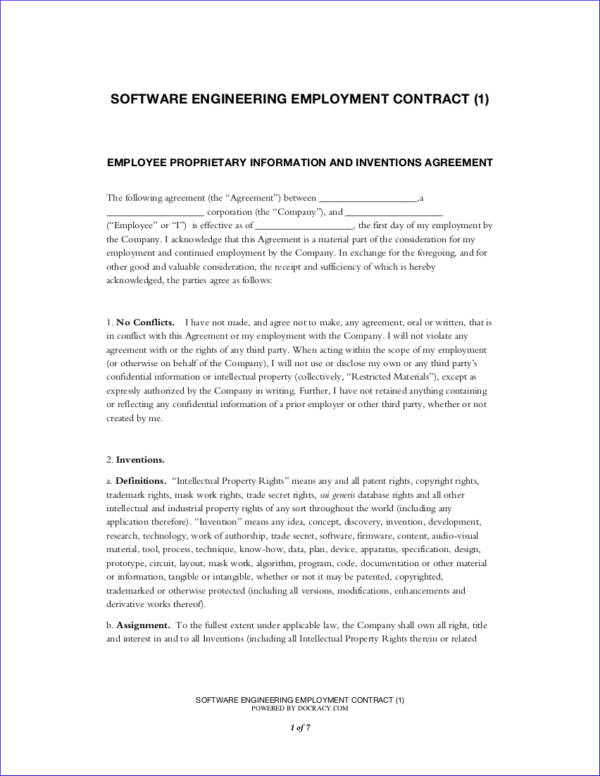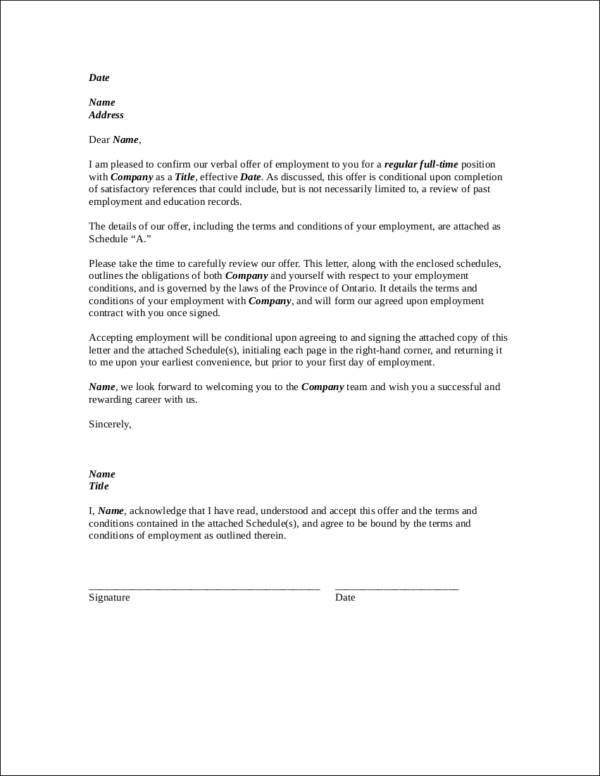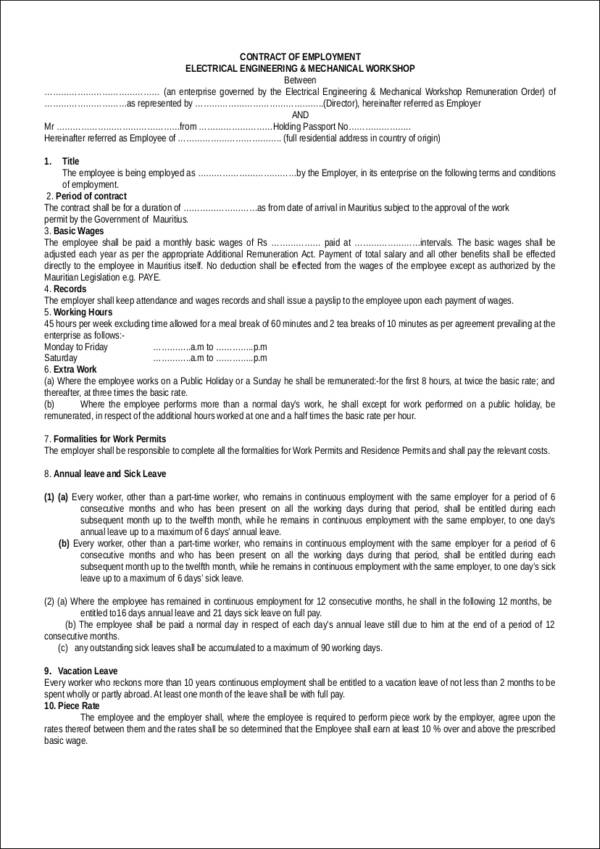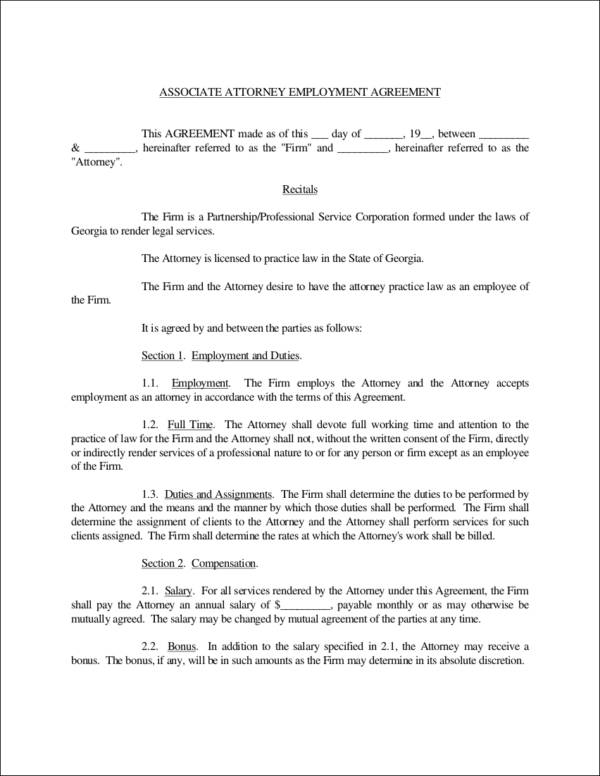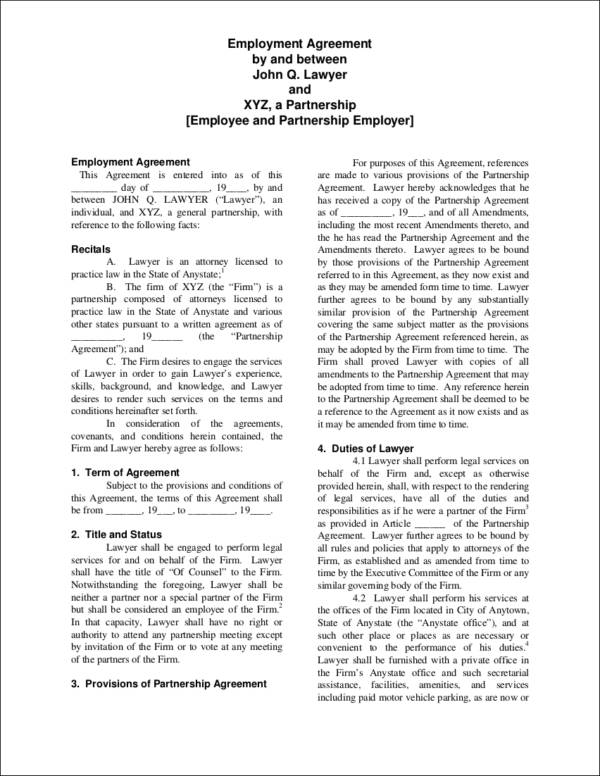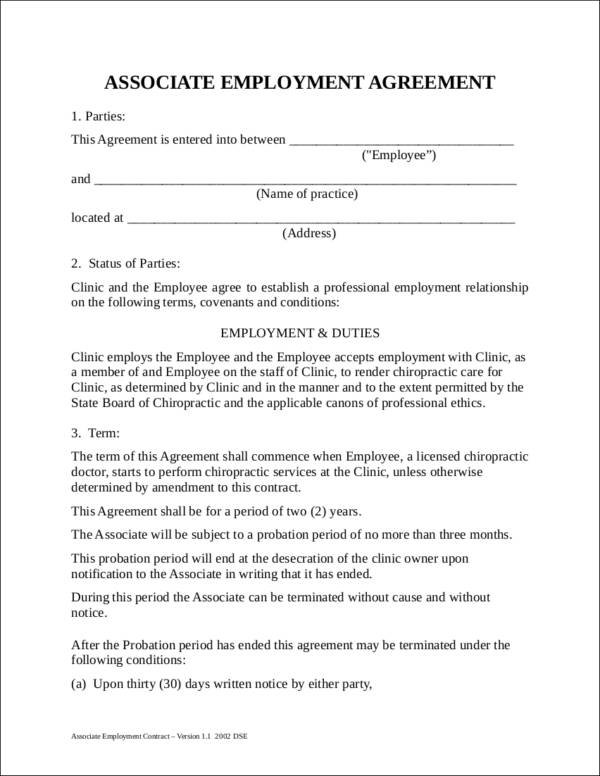Applying for a job is never easy. It doesn’t matter if you are the top student of the class, a fresh graduate, or one who has a lot of experiences. You still need to go through the tedious employment process to be able to land a job. I am not just talking about the difficult examination and endless job interviews. There are also the preemployment requirements, other important requirements, and the orientation. Everybody goes through this energy-draining cycle every time we apply for a job.
With all of the hard work and effort we put into applying for the job we so dream of having, we finally land ourselves an employment contract. An employment contract is a contract between two individuals. It is a document that is provided by an employer to their employee or prospective employee. This contract will provide the duties and responsibilities of both employer and employee and serves as a legal document that binds both parties to do their part.
An employment contract is definitely important, that is why one should be extra careful, either before providing and signing an employment contract. This article gives focus on the importance of employment contracts, as well as provide useful contract samples of legal contracts. They can be downloaded and used for your convenience.
Sample Manager Employment Contract
Sample Freelance Writing Contract
Sales Representative Employment Contract
Standard Employment Contract
Employment Contract for Foreign Domestic Worker
What Is the Purpose of an Employment Contract?
Employment contracts are important not just because they serve as poof that one has been hired as a new employee of the company, but it also serves other purposes. The purposes of an employment contract are as follows.
- The primary purpose of an employment contract is to make sure that both employer and employee understand their duties and responsibilities within the term of the employment.
- Any disputes that may arise in the future can be eliminated with the use of an employment contract that has been read, understood, and signed by both employer and employee.
- An employee contract lets the employee know about their rights as an employee.
- An employee contract binds both the employer and employee to the terms and conditions stated therein. Thus, any violations or breach made by any of the parties involved will have to face the appropriate consequences.
Contract of Employment
Employment Contract Sample
Siza Contract of Employment
Domestic Worker Employment Contract
Sample Employment Agreement Contract Template
What to Include in an Employment Contract
A contract should be valid and effective at the same time to make sure that there would be no future problems that will arise from it. These problems may cause a lot of inconveniences and may be very costly. That is why, before signing an employment contract, or any other contract, one should know the things that are needed to make the said contract effective.
- Job information – Provides the description of the employee’s job, which includes what department and team he/she will work with or belongs to. It should also state the specific duties and responsibilities of the employee within the company or organization.
- Confidentiality agreement – One important part of an employment contract that an employer should include is the confidentiality agreement. Instead of having it signed as a separate document, it could be included in the employment contract. A confidentiality agreement is included so that employers can protect sensitive information, like business and trade secrets.
- Compensation and benefits – An outline of the employee’s compensation and benefits should be provided. It should include the employee’s annual salary, monthly or hourly rate, incentives and bonuses, and salary increases or raise that they may be able to obtain. An explanation of their health benefits and other benefits should also be provided.
- Time off, sick days, and vacation policy – The employee contract should also provide details about the number of hours the employee can take some time off work, how they can get more hours, when can they start getting time off hours after getting employed, and the company’s sick leave and vacation leave policies.
- The schedule of employment and employment period – The employee should be provided with details about their employment on when their start date would be, their work hours or shift hours, and how long their contract is with the company if they are contractual employees.
- Termination terms and conditions – The conditions or grounds for terminating employees should be clearly stated. An explanation of how the termination process is done should be provided for the employee’s knowledge and awareness.
- Classifying employees – Knowing whether your employee is a new hire or contractor can save you from a lot of lawsuits and other problems caused by faulty employee classification. Being able to classify your employees ensures that an employer is able to comply with the tax and insurance policy.
- Privacy policy regarding technology – Providing limitations as to what employees can do over the Internet or by using company-owned equipment—like computers, laptops, and company-provided cell phones—should be included in an employee agreement. It is important to tell them about the details on what is allowed and not allowed in the office.
- Severance – There will really be a time when and employer and employee will have to part ways because of a lot of different reasons. This may not always be the case, but it’s better to be prepared than to have problems in the future.
- Requirements needed after termination – These requirements may be mandates or restrictions that an employer bids the employee after they left the company. These kinds of statements can be found in termination contracts. This means that the employee cannot work in a company or job in the same field as the company that they left behind.
HR Council Employment_Agreement
Standard Teaching Contract
Probationary Teacher Employment Contract
Software Engineering Employment Contract
Types of Employment Contracts
We are well aware of full-time and part-time employment contracts as they are commonly what is offered by most companies who are hiring for new employees. Aside from these two, there are four more types of employee contracts and they are fixed-term contracts, agency staffing, zero hour contracts, and freelancers, consultants, and contractors. Each of these types is discussed below to give you a better understanding of what they are and why they are important.
- Full-time contracts – This is the most common type of employment contract because this is where permanent company positions are being offered. In a full-time contract, the salary of the employee is set out including the benefits that they are entitled to, leaves, allowances, pension, and many more.
- Part-time contracts – It is called a part-time contract because those who work part time work for a lesser number of hours compared to full-time employees. A part-time employee can still hold a permanent position within the company, and their benefits include having a flexible work schedule and more free time to try new roles.
- Fixed-term contracts – Being in a fixed-term contact means that your work will only last for a specific duration or a specific amount of time. Employees who are in this type of contract are entitled to the same benefits as permanent employees.
- Agency contracts – This type of contract is being managed by recruitment agencies or employment agencies. The recruitment agency is responsible for taking care and protecting the employees’ rights. Employees who are hired by an agency work as temporary employees and the contract is based on the client’s demands. This contract may sometimes be similar to service contracts.
- Freelancers, consultants, contractors – The people who work with this type of contract are considered to be self-employed workers where they get to manage their time and schedule. The contracts for these types of work vary depending on what has been agreed upon by the contractor and the employer. The individual will be responsible for taking care of their tax and other required contributions.
- Zero hour contracts – An employee who is under a zero hour contract only works when their employer requires them to work. They don’t have a required amount of hours needed to work and they can refuse any job offers that will hinder them from accepting jobs or work from other employers.
Sample Employment Contract Template
Contract of Employment Template
Associate Attorney Employment Agreement
Employment Agreement Contract
Associate Employment Agreement Contract
Ten Reasons Why You Need a Contract
We already know the things that are needed in a contract, the purpose of a contract, and the types of contracts. But there is still another thing that you need to know about employment contracts. Do you know the reason why we need employment contracts? If not, then this is the perfect time for you to learn about them. Here are then reasons why you need an employment contract.
- You will be able to navigate and understand the law more clearly by having a contract. Contracts that are made by professionals ensure that you are on the right side of the law. This allows your business to avoid any loopholes or problems in the future that may arise because of not having a contract.
- Contracts state the terms and conditions that have been agreed upon by two or more parties. This minimizes the possibility of having disputes and problems in the future. Any false claims can be proven and defended against because of what has been stated in the contract.
- What is written in a contract is certain and cannot be changed unless the contract’s date is over, or if a new contract is created. Written contracts are mostly preferred because they not only provide statements of the terms and conditions, they also serve as legal documents or proof that both parties came to the same understanding and agreement.
- Good customer service can be provided through the use of contracts. When customers purchase goods or services that ended up having problems, they can have it fixed or replaced by following the instructions stated in the purchase contract. These instructions would include an explanation of the return and refund process, warranties, complaint procedure, etc.
- Limiting your liabilities can be done through the use of contracts. It helps you protect your business from any disputes and protects any of your valuable assets.
- A contract helps in building a relationship that is based on trust and makes the relationship last longer. Making use of a legal document gives your clients peace of mind and ensures them that transaction is legit.
- A contract can protect one’s intellectual properties by having it stated in a contract. Intellectual properties are important in a business, that is why they should be protected at all times. The contract may include specific details on how an intellectual property is to be used and where it can be used.
- Expectations can be managed with the use of a contract. You can explain the terms and conditions of a sale with the use of a contract and this will then help you manage the customers’ expectations about that sale.
- In every employment contract, like a car sales contract, installment sales contract, and other types of contract, payment details will always be included and agreed upon by the parties involved before they seal their deal. The payment details include the payment amount, mode of payment, length of payment, etc. A contract being a legally binding agreement ensures that both parties will do their responsibility in making payments.
- A contract lets your clients know the type of business you are having, how your business works, and how it is being managed. It gives your clients an understanding about the operations and sales processes so that they will know what to expect.
Now that you know of the 10 reasons for needing a contract, you should be well aware of the things that go around in the contracting world. Use this to aid you when creating your individual employment contract. These important information as well as the sample contacts and contract templates we have provided in this article will surely make your task easy and convenient.
Related Posts
Sample Excuse Letter for School
Feature Writing Samples
FREE 14+ Sample Music Concert Proposal Templates in MS Word | Google Docs | Pages | PDF
FREE 10+ Security Guard Contract Samples in PDF | MS Word
FREE 10+ Assurance Agreement Samples In MS Word | Google Docs | Apple Pages | PDF
FREE 10+ Option to Purchase Agreement Samples in MS Word | Apple Pages | PDF
FREE 26+ Curriculum Form Samples in MS Word | PDF
FREE 20+ Cleaning Service Proposal Samples in PDF | MS Word
FREE 29+ Sample Loan Application Form Templates in MS Word | PDF
FREE 10+ Event Venue Contract Samples in PDF | MS Word | Pages | Google Docs
FREE 10+ SBAR Samples in PDF | DOC
FREE 12+ Music Band Contract Templates in PDF | MS Word
FREE 10+ HVAC Maintenance Contract Samples in PDF | MS Word
FREE 10+ Social Media Marketing Contract Samples in MS Word | PDF
FREE 10+ Wholesale Assignment Contract Samples in PDF

